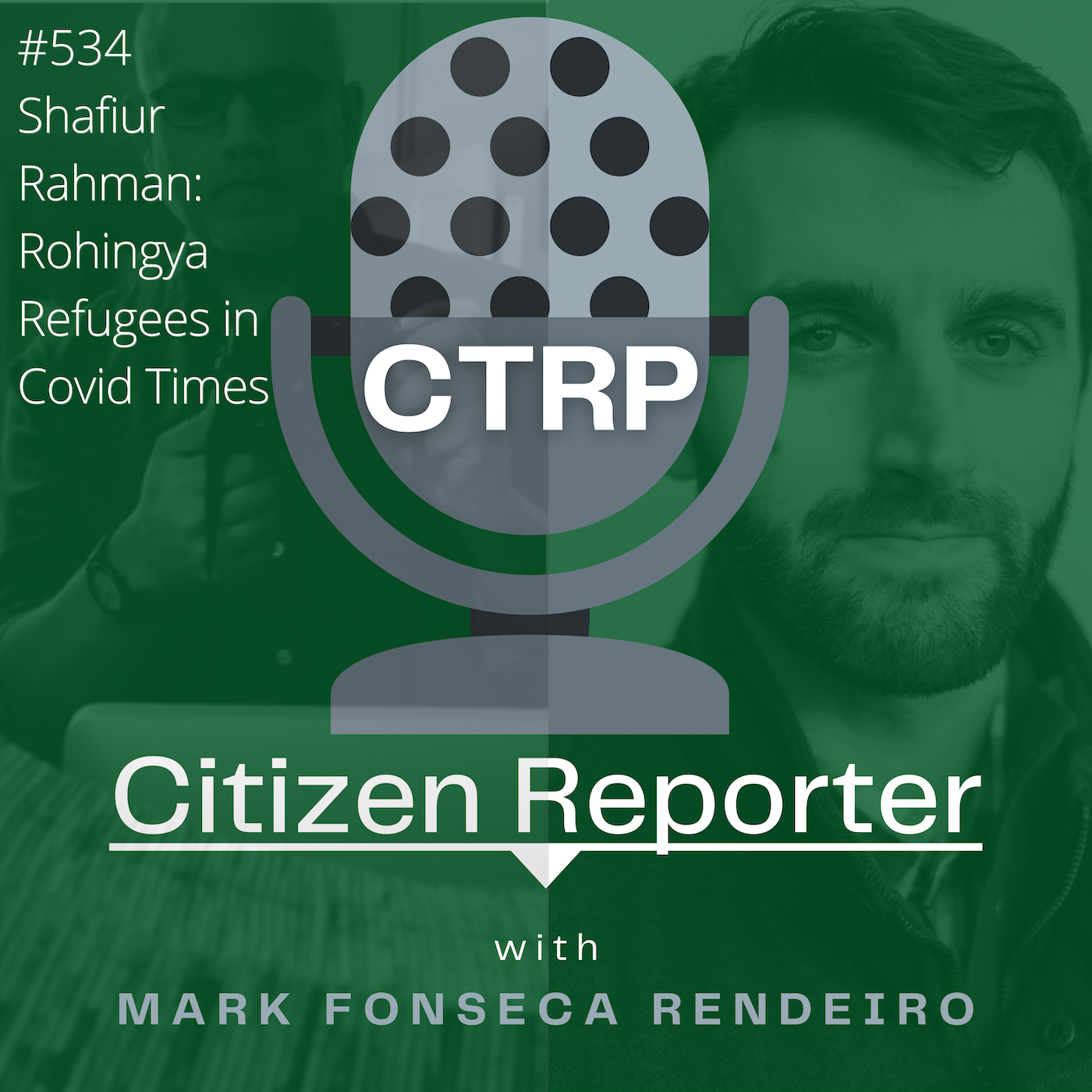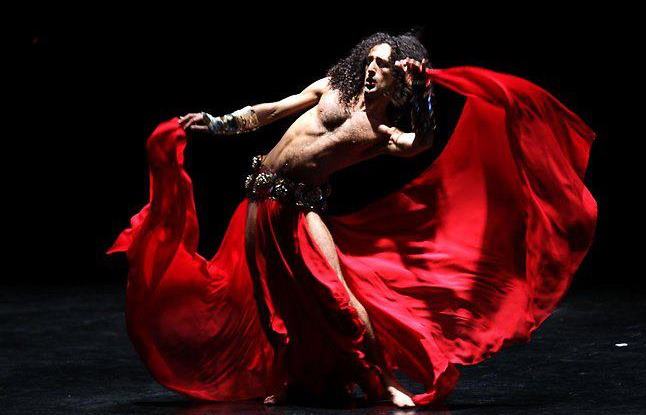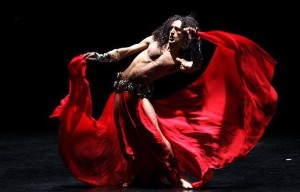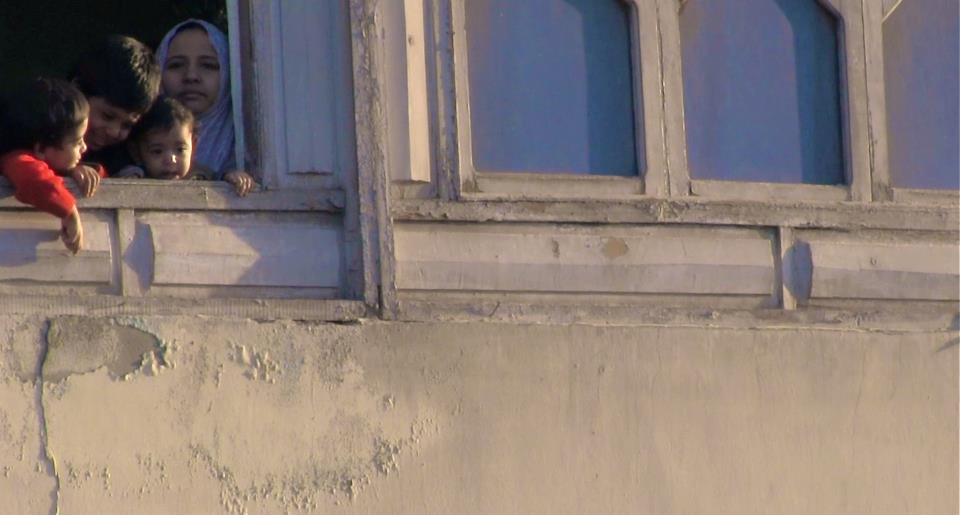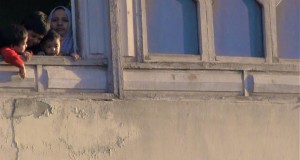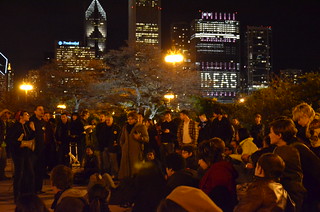At the beginning of this winter, as I prepared for the great journey to North Africa, here in Amsterdam I heard about a group of asylum seekers who were living in a tent camp somewhere in the city. Despite my preoccupation with my own plans, I was pleased to hear that many organizations and individuals that I know to be good at making things happen and finding solutions were involved. Then in early December I heard that after their tent camp was taken down by the authorities, with help from concerned citizens of Amsterdam, the refugees occupied an empty church not far from my neighborhood. They called it “De Vluchtkerk”, literally translated: “The Flight Church”, though I prefer to simply call it The Refugee Church.
After all my travels and everything else that has kept me busy these past few months, a few weeks ago I finally had the good fortune to be welcomed at the church and meet some of its residents.
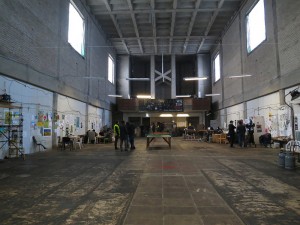 As I walked into this strange cement structure, I immediately noticed the chilling cold in the massive main hall. It felt almost colder than the wintery weather outside, which made it perfectly understandable that everyone I saw standing or sitting near the entrance was sporting a winter coat and warm hat. Near the door, a few Dutch volunteers look through paperwork and chat with a few residents. It feels like a routine day, a camera crew sits near a couch and have a laugh during what seems to be a long interview. At a make-shift computer lab consisting of 4 computers in one corner of the hall, several men seem captivated by whatever they are reading. As I look forward towards what used to be the alter of this defunct church, I see a man and two women preparing what will surely be dinner using their improvised kitchen setup. Every few minutes someone else walks out of one of the side doors which lead to dorm style sleeping areas behind what are clearly recently created plywood walls. Each door is decorated with signs and pictures, featuring text in English, French, and Arabic. Every time one person passes another they speak a quick “hello my brother” or “hello my sister”. I also try to get into it by nodding my head towards people who pass me, “good afternoon”, “salaam alaykum”, etc. The friendliness is contagious.
As I walked into this strange cement structure, I immediately noticed the chilling cold in the massive main hall. It felt almost colder than the wintery weather outside, which made it perfectly understandable that everyone I saw standing or sitting near the entrance was sporting a winter coat and warm hat. Near the door, a few Dutch volunteers look through paperwork and chat with a few residents. It feels like a routine day, a camera crew sits near a couch and have a laugh during what seems to be a long interview. At a make-shift computer lab consisting of 4 computers in one corner of the hall, several men seem captivated by whatever they are reading. As I look forward towards what used to be the alter of this defunct church, I see a man and two women preparing what will surely be dinner using their improvised kitchen setup. Every few minutes someone else walks out of one of the side doors which lead to dorm style sleeping areas behind what are clearly recently created plywood walls. Each door is decorated with signs and pictures, featuring text in English, French, and Arabic. Every time one person passes another they speak a quick “hello my brother” or “hello my sister”. I also try to get into it by nodding my head towards people who pass me, “good afternoon”, “salaam alaykum”, etc. The friendliness is contagious.
The group, which is now comprised of over 100 men and women from countries like Sudan, Somalia, Mauritania, and Eritrea, has become a tight-knit unit where everyone knows each other. I’m welcomed by Mouthena, who I had arranged a meeting with via telephone the day before. He is dressed in full winter gear and sports an uneven beard to go along with his obvious tiredness. “I’m sorry I’m probably looking very tired because its too cold to sleep these nights. Many of us just stay up all night with this cold,” he explains to me in French. Mouthena is Western Saharan, though no such country exists in the eyes of most of the world. The UN technically looks after the territory of Western Sahara and Morrocco exercises control over much of what happens there. Mouthena identifies himself as Polisario, the traditional name of the independence movement that has been largely outlawed by Morrocco despite being recognized by the UN. As a result of all the difficulties within the territory, Polisarios like Mouthena live most of their lives in refugee communities just over the border in Mauritania. As he pours me a cup of tea, he explains the difficulties of living in such a place, and the tribal conflict that became a threat to his life and caused him to flee to Europe.
Over the course of the next few hours, Mouthena explains what had been his goal to seek asylum in Sweden, the complicated journey and eventually getting apprehended on an international bus ride in Germany, where immigration sent him to the Netherlands, the country from where the bus originated. The details are captivating and frustrating, yet he explains it all with relative calmness, until he comes to parts that clearly make him upset. “I can’t tell you more of these details, they make me too sad. Not today. But I’ll tell you other things about this place and its people.”
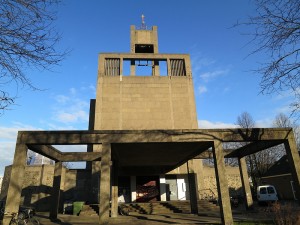 As we take a tour of the massive grey hall, every few steps he stops to greet a resident and introduce them. As I shake a very well dressed quiet man’s hand, Mouthena sings his praises, “This man is very talented. His name is Shirac, he is a singer-songwriter.” Sure enough I spot a poster on the wall with images from a concert by the “Vluchtkerk Band” and there he is on stage. Over in a side room we’re greeted by a stern, imposing African woman who is busy folding bed sheets with great gusto. Again Mouthena explains, “She is our mother. To all of us who don’t have mothers here. We call her our mother and she treats us like her children.” He sneaks a hug which the woman accepts gracefully.
As we take a tour of the massive grey hall, every few steps he stops to greet a resident and introduce them. As I shake a very well dressed quiet man’s hand, Mouthena sings his praises, “This man is very talented. His name is Shirac, he is a singer-songwriter.” Sure enough I spot a poster on the wall with images from a concert by the “Vluchtkerk Band” and there he is on stage. Over in a side room we’re greeted by a stern, imposing African woman who is busy folding bed sheets with great gusto. Again Mouthena explains, “She is our mother. To all of us who don’t have mothers here. We call her our mother and she treats us like her children.” He sneaks a hug which the woman accepts gracefully.
The stories become too many to communicate in one text, one interview, or one video. Thankfully one by one, several journalists and dedicated media makers have been recording and disseminating these stories over the past months. Many of them prominently found on the church’s website.
When this month ends, so too will the temporary agreement local activists made with the property owner to house the group. Always the resourceful types, the organization says the Refugee Church will come to an end but the group will continue its struggle with Dutch immigration authorities, to not be sent back to their home countries where death and despair await them. I ask several members of the group what they think will happen, a question which always earns the same response: “We don’t know. We are hopeful. But we never know. The only thing we want is to be able to live legally and in safety. And after this experience, it is now important to us that we stick together.” When Mouthena answers this question he adds his own twist, “You know, in our home countries we have many conflicts, borders, languages, all kinds of differences that separate us. Here we are one family. These are my brothers and sisters now.”


